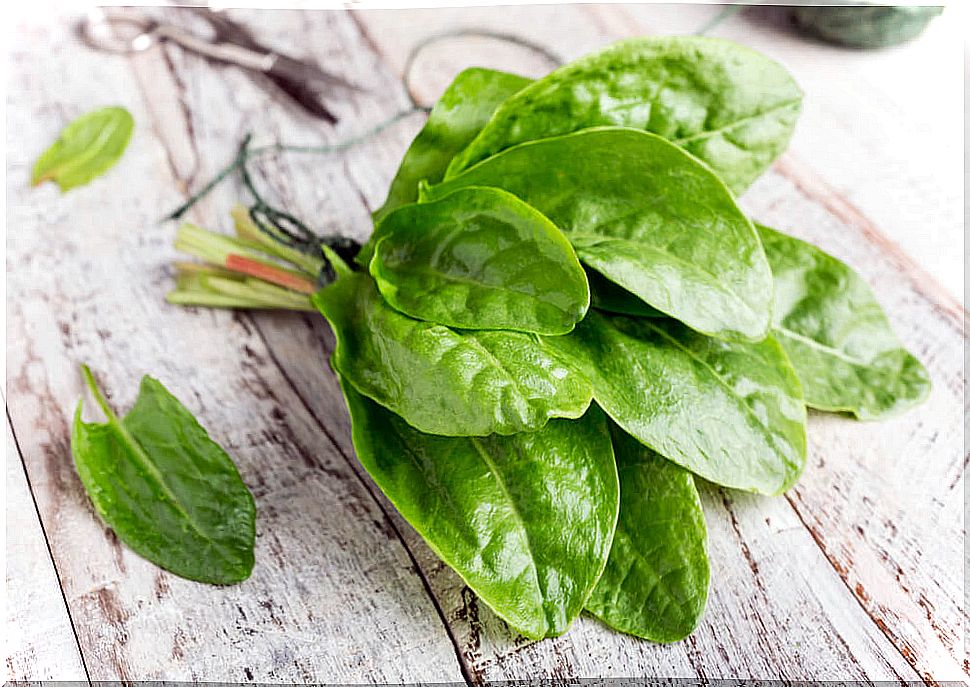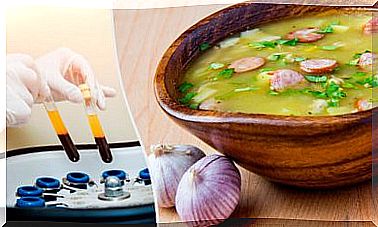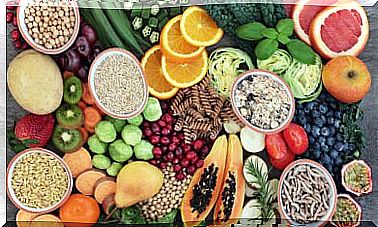Consume Sorrel If You Have Vitamin C Deficiency
Sorrel is a wild plant with its leaves, which we can take in infusion, stewed or raw, they are rich in vitamin C, fiber and flavonoids, so it is ideal for our health.

Vitamin C is an essential nutrient for health. Nowadays, it is convenient to increase its consumption to avoid nutritional deficiencies. A great way to increase this vitamin is to consume sorrel leaves.
Discover in this article why it is important to consume vitamin C, what disorders its deficiency can cause us and why we can prevent it and treat it with sorrel. This edible medicinal plant, which belongs to the buckwheat and rhubarb family, is very rich in antioxidants. Discover it!
Vitamin C
Ascorbic acid or vitamin C is one of the best antioxidants we have. For this reason, it is not only important to prevent many health disorders, but also to have a long life.
The recommended daily allowance for vitamin C is 75 mg for women and 90 mg for men. However, we can reach 200 mg daily without any risk to combat a possible deficit. In addition, smokers should also know that this bad habit (or even just their exposure to smoke) causes a greater deficiency of this vitamin, so they should increase their intake.
Vitamin C stays in our blood for up to 5 hours. In this sense, if we consume foods that contain it at each meal, we will ensure that we always have this need covered.
What happens to us if we lack vitamin C?
Vitamin C deficiency in our body can cause the following diseases and disorders:
- Scurvy: It can be fatal if we do not treat it, since this disease causes internal and external bleeding.
- Gingivitis or inflammation of the gums.
- Difficulties in wound healing.
- Tiredness and muscle weakness.
- Anemia, as it helps to assimilate iron well.
- Weakness of the joints, tendons, cartilage, etc.
- Aging and premature wrinkles.
- Cardiovascular diseases.
- Dry hair and split ends.
- Tendency to bruise.
- Facilitate to suffer infections.
Although this vitamin is essential for good health, people who take it as a supplement should know that if they exceed the recommended daily dose they can suffer side effects. The most common are stomach pain and diarrhea. In children, its excess can be dangerous and affect kidney, liver and heart function.

Who needs more vitamin C?
All of us need to obtain the necessary amounts of vitamin C on a daily basis. With a balanced and complete diet, rich in raw fruits and vegetables, we will not risk suffering from their deficit.
However, there are groups that need an extra amount of this nutrient :
- Smokers, both active and passive
- Women during pregnancy and lactation
- Diabetics
- Asthmatics
- People with allergies to many fruits
- Regular consumers of alcoholic beverages
- Old people
- People who regularly take some medications such as contraceptives, antibiotics or cortisone
Sorrel
Sorrel is a wild plant with medicinal properties that grows in hot areas throughout the year. Its tender leaves are consumed raw, stewed or in infusion. In ancient times its root was also eaten as a purgative.
Sorrel leaves, with a sour and sweet taste at the same time, are very rich in vitamin C. They also contain other nutrients such as beta-carotenes, flavonoids, anthraquinones and fiber. However, we must bear in mind that they also contain oxalates.

Medicinal properties
Sorrel has the following beneficial properties for health:
- It fights free radicals and prevents premature aging.
- Facilitates digestion, as they stimulate gastric juices and appetite.
- It favors intestinal transit thanks to its laxative properties.
- Its flavonoid and potassium content prevents fluid retention and swelling.
- Relieves cough.
- It prevents cardiovascular diseases such as high blood pressure and high cholesterol.
Other foods with vitamin C
To increase the consumption of vitamin C we can incorporate the following foods into our diet:
- Acerola
- Hip
- Guava
- Red fruits (strawberries, currants)
- Citrus fruits (lemon, orange, grapefruit, tangerine, lime, kumquat)
- Pepper
- Cruciferous vegetables (radish, turnip, arugula, cauliflower, broccoli, Brussels sprouts)
- Melon
- Aromatic plants (coriander, thyme, basil, parsley)
Importantly, to get the most out of vitamin C, we must avoid overcooking vegetables. The ideal is to leave them a little crisp, with little water or steamed.









